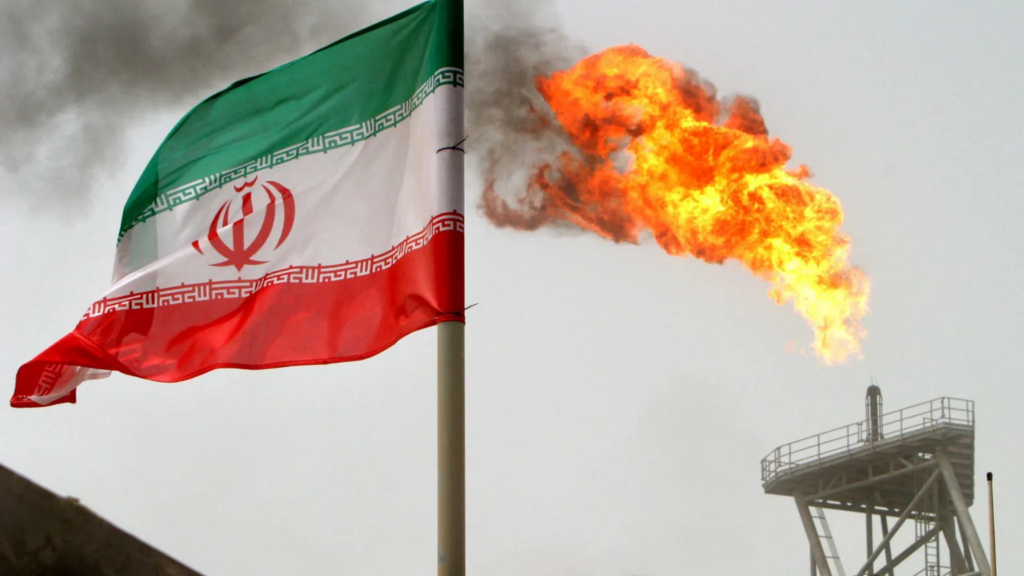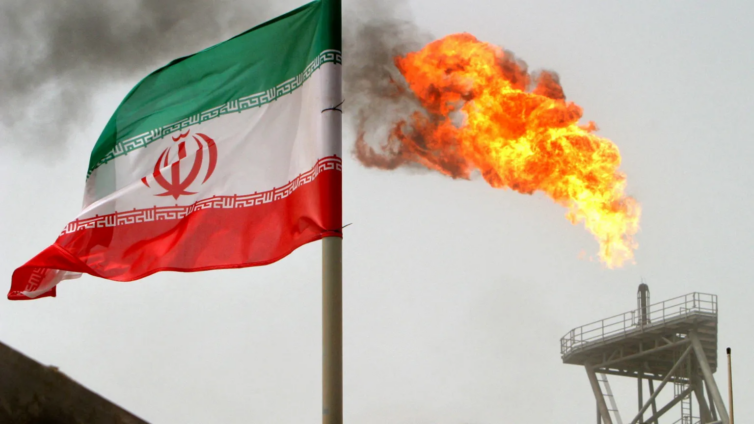Oil and gold prices have jumped after US officials said an Israeli missile had struck Iran.
Brent crude, the international benchmark, rose by 1.8% to $88 a barrel while gold briefly came close to a record high before falling back to nearly $2,400 an ounce.
Investors have been closely watching Israel’s reaction to Iran's direct drone and missile attack last weekend.
There are concerns a worsening conflict in the Middle East could disrupt oil supplies.
Oil prices had jumped by as much as 3.5% initially. However, gains receded after Iranian state media claimed that there was "no damage" in Isfahan province where there had been reports of explosions.
Sharp and sustained rises in oil prices risk fuelling inflation. Countries are heavily reliant on the commodity, which is used to produce fuels such as petrol and diesel.
Fuel and energy prices have been a major driver behind the higher cost of living worldwide in the past couple of years.

Randeep Somel, fund manager at M&G Investment Management, told the BBC's Today programme: "The concern for markets would mainly be the inflationary one, that this would actually add to inflation."
While the pace of inflation has been slowing, in the UK it is still above the Bank of England's 2% target and some economists have forecast that a cut to interest rates may not happen until summer or later on in the year.
"In the UK, the inflation rates is still around 3.2% - still someway off the target – and it is becoming a bit of a concern for policymakers," said Mr Somel.
"It is good to see that this hasn’t escalated any further and that hopefully, the disruption to markets is short-lived.”
The gold price often rises at times of uncertainty as it is seen as a safe investment.
The heightened tension in the Middle East has led to concerns about whether shipping through the Strait of Hormuz between Oman and Iran will be affected.
It is a crucial shipping route, as about 20% of the world's total oil supply passes through it.
Members of the oil producers' cartel Opec - Saudi Arabia, Iran, the UAE, Kuwait and Iraq - send most of the oil they export through the strait.
Iran is the seventh largest oil producer in the world, according to the US Energy Information Administration, and the third-largest member of Opec.
The initial spike in oil prices was "a knee-jerk reaction to fears of a renewed escalation of warfare between Israel and Iran," said energy market expert Vandana Hari of Vanda Insights.
"What the latest events underscore is the heightened fragility and volatility in the Mid East situation," she added.
Stock markets fell as investors reacted to the latest events. In the UK, the FTSE 100 share index fell by 0.4% while the FTSE 250 dropped by 0.8% in early trading.
In Asia, Japan's Nikkei 225 index fell 2.7%, while Hong Kong's Hang Seng dropped 0.9%. The Kospi in South Korea closed down 1.6%.
Latest Stories
-
Fugitive Zambian MP arrested in Zimbabwe – minister
25 mins -
Town council in Canada at standstill over refusal to take King’s oath
36 mins -
Trump picks Pam Bondi as attorney general after Matt Gaetz withdraws
48 mins -
Providing quality seeds to farmers is first step towards achieving food security in Ghana
59 mins -
Contraceptive pills recalled in South Africa after mix-up
1 hour -
Patient sues Algerian author over claims he used her in novel
2 hours -
Kenya’s president cancels major deals with Adani Group
2 hours -
COP29: Africa urged to invest in youth to lead fight against climate change
2 hours -
How Kenya’s evangelical president has fallen out with churches
2 hours -
‘Restoring forests or ravaging Ghana’s green heritage?’ – Coalition questions Akufo-Addo’s COP 29 claims
2 hours -
Ensuring peaceful elections: A call for justice and fairness in Ghana
3 hours -
Inside South Africa’s ‘ruthless’ gang-controlled gold mines
4 hours -
Give direct access to Global Health Fund – Civil Society calls allocations
4 hours -
Trudeau plays Santa with seasonal tax break
4 hours -
Prince Harry jokes in tattoo sketch for Invictus
4 hours

